Select your dining table by considering its shape, material, and the manner in which its form relates to the décor.
By virtue of their size, a dining table inevitably ends up being a major decorative element — and the greatest contributor to a dining space’s message — which makes the selection of a table the most crucial aspect of decorating any dining space. Beyond the complexities of arrangement, the shape, material, and design of a dining surface will have discernible effects on the space it occupies: large surfaces will make compact spaces seem smaller, simplistic designs divert attention to the surroundings, while luxurious materials pull the eye. In this guide, we take a look at the various ways dining spaces could be elevated to the highest peak of potential with the consideration of factors such as shape, material, and decorative styles.
Stand Out
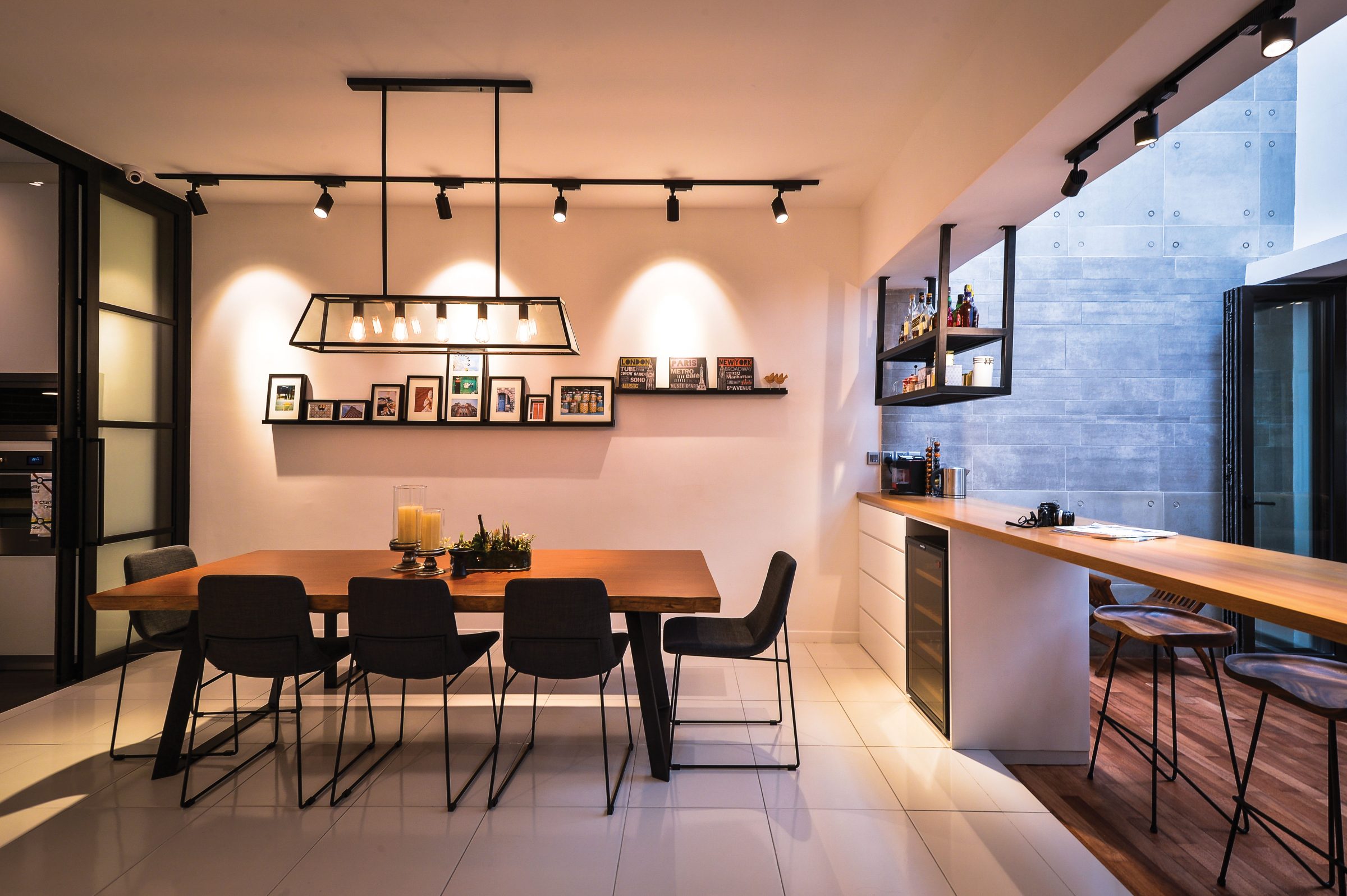
Interior design by: Yong Studio
Following in the wake of the abstract works from artists such as Jackson Pollock, is minimalism — the school of aesthetics which seeks to strip everything down to the bare essentials, to reinforce purpose and practicality with sleek, uncomplicated, and space-saving forms. A table of minimalist design is preferred for providing functionality while retaining a sense of space in a compact dining area. In the pictured dining space decorated by Yong Studio, the selection of a table embodying minimalist style matches the surrounding architectural finishes and buries the arrangement in a background of complementary tones and textures to preserve space.
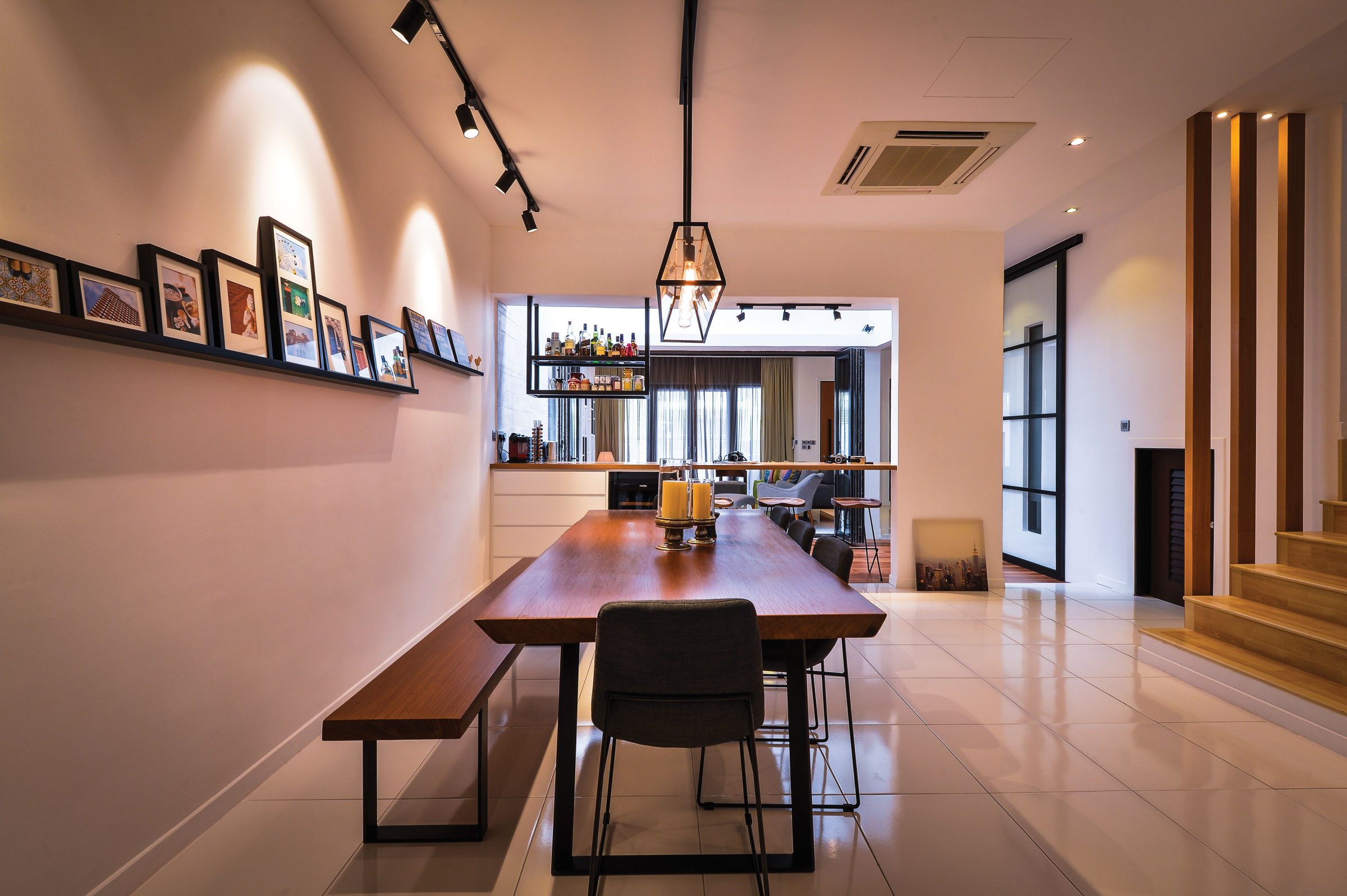
Interior design by: Yong Studio
Full Circle
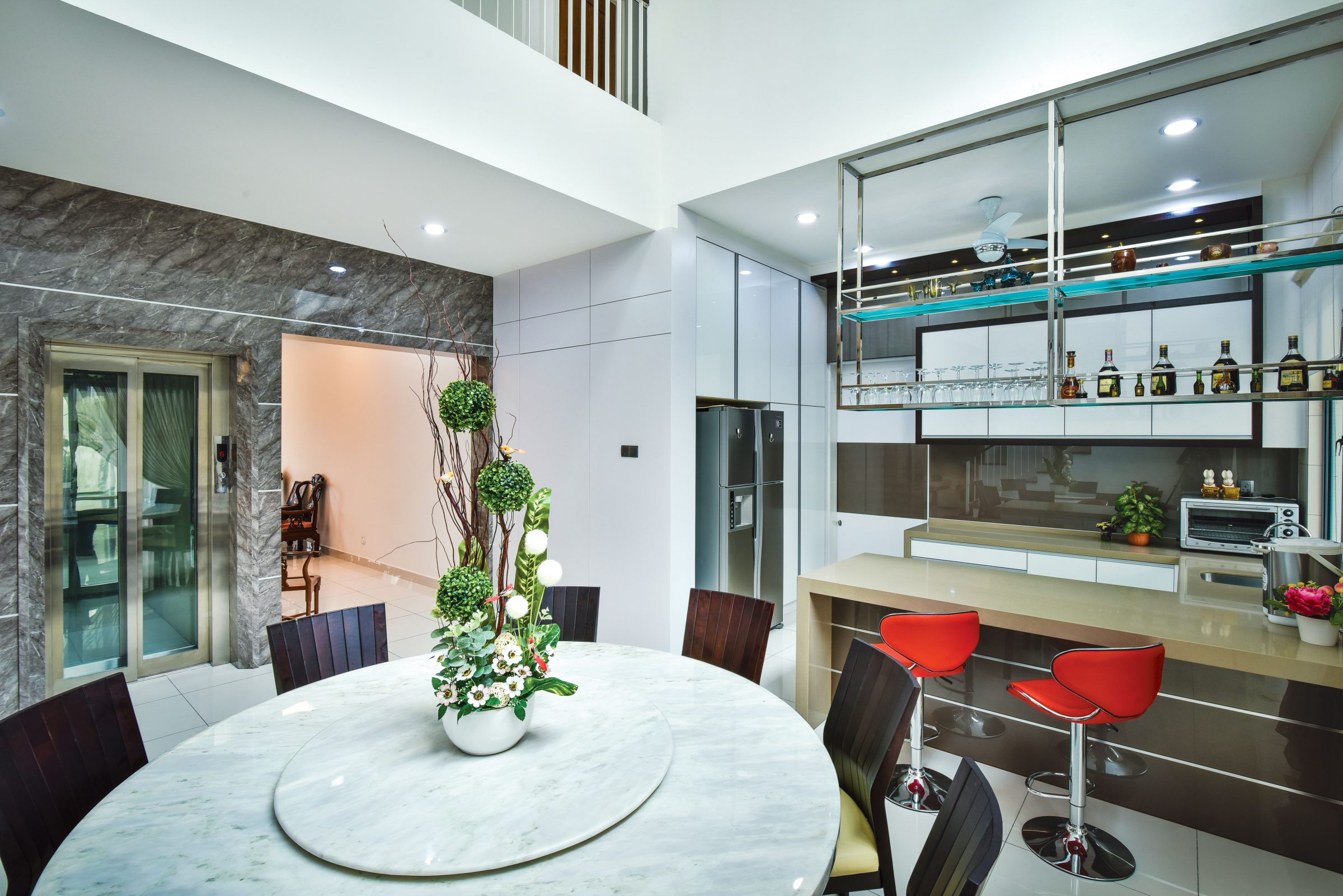
Interior design by: Jashen Interior Design
While rectangular dining tables may appear empty with some chairs removed, a circular dining surface presents itself as the more versatile choice as its appearance will remain complete whether hosting a full accompaniment of chairs or a sparse arrangement consisting of only a few seats. Due to the greater area that circles entail, the circular table is preferred for wide spaces that leave plenty of room to manoeuvre. The pictured dining area features a circular table with space for up to eight diners, a number that would not be as comfortably achieved with a rectangular table of similar size.
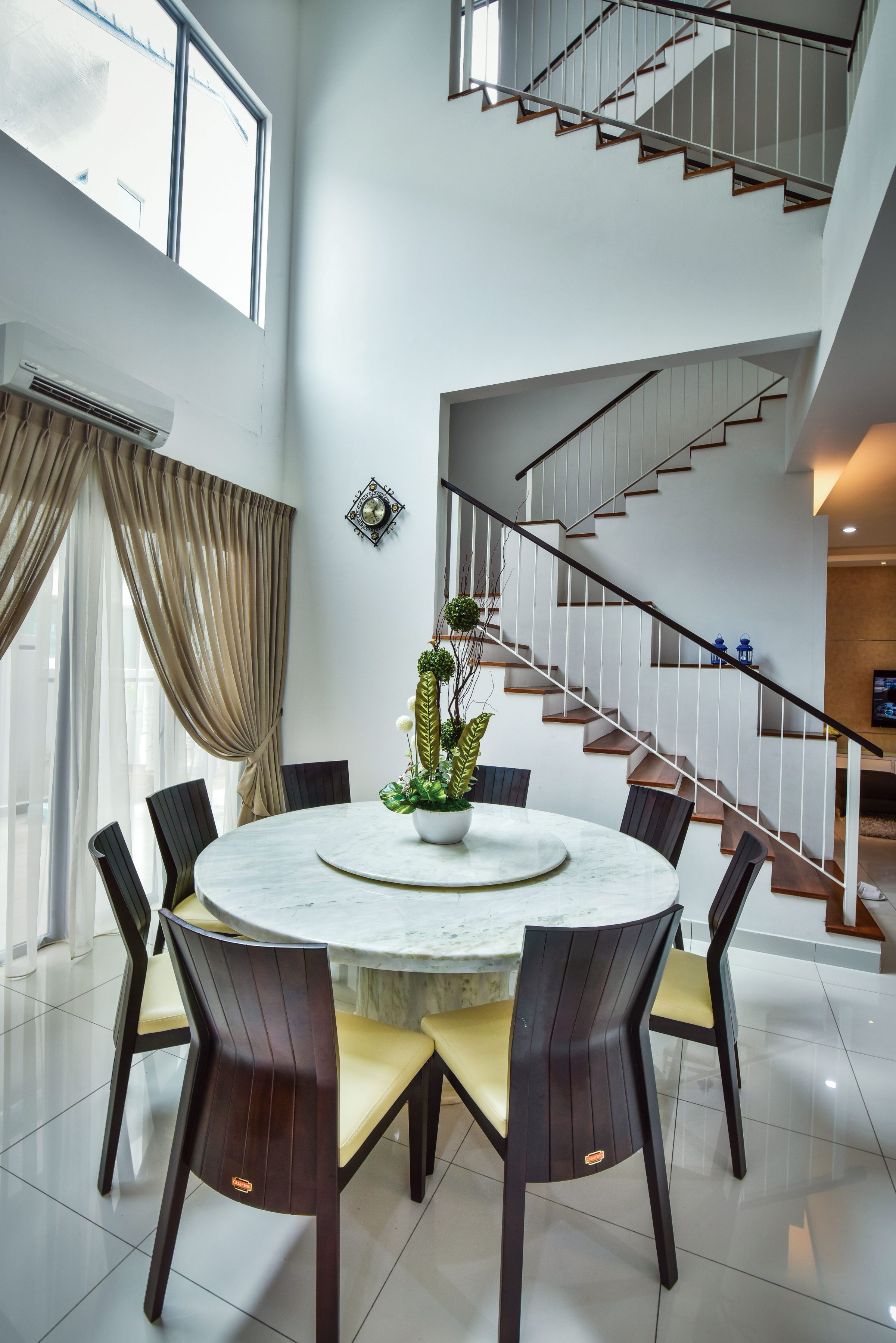
Interior design by: Jashen Interior Design
Tip: To calculate the number of diners appropriate for a round table, multiply the diameter of a table by the value of Pi (π: 3.14) and divide the result by the amount of space needed for each diner (60cm to 70 cm, or 24” to 28“).
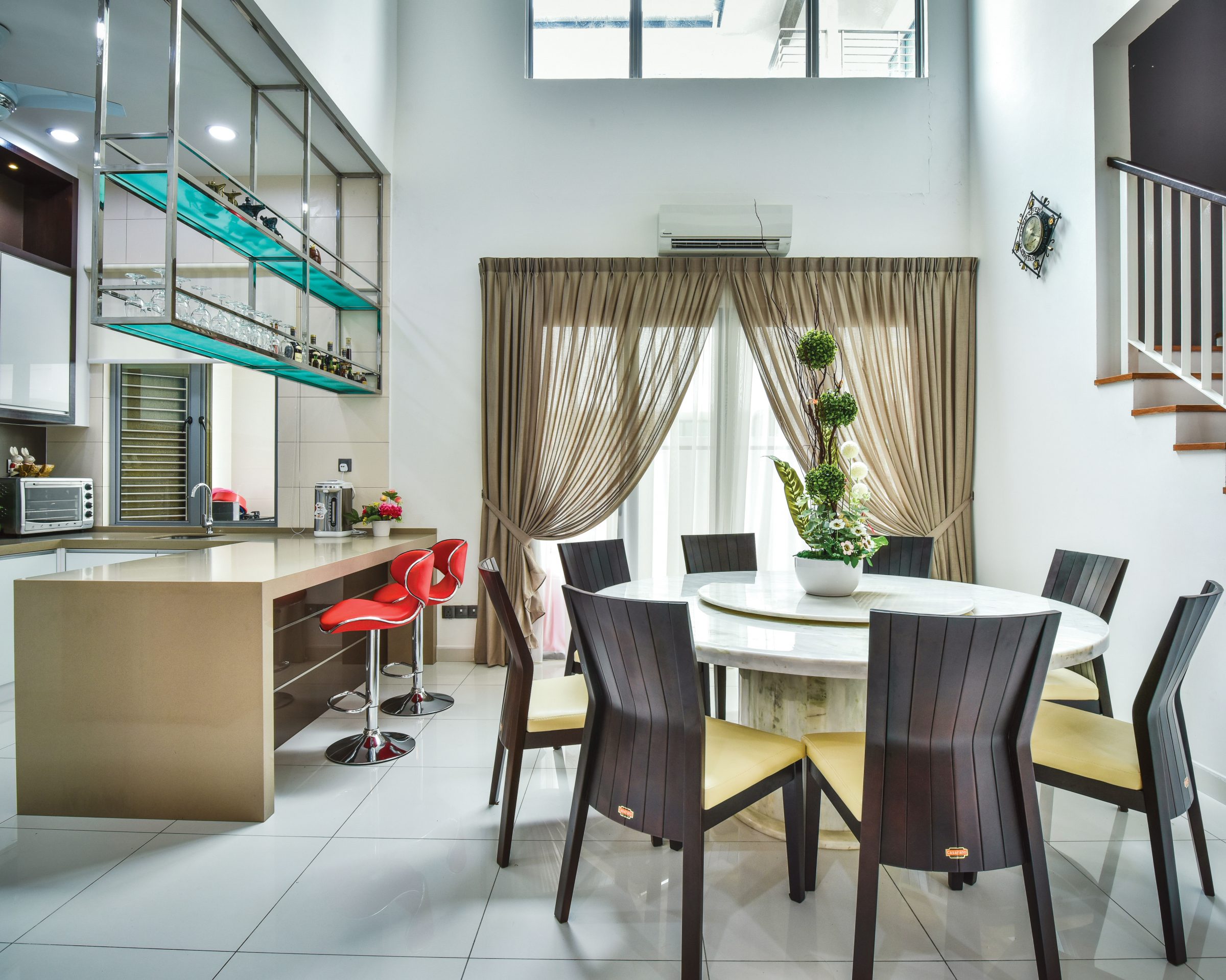
Interior design by: Jashen Interior Design
Marble Marvel
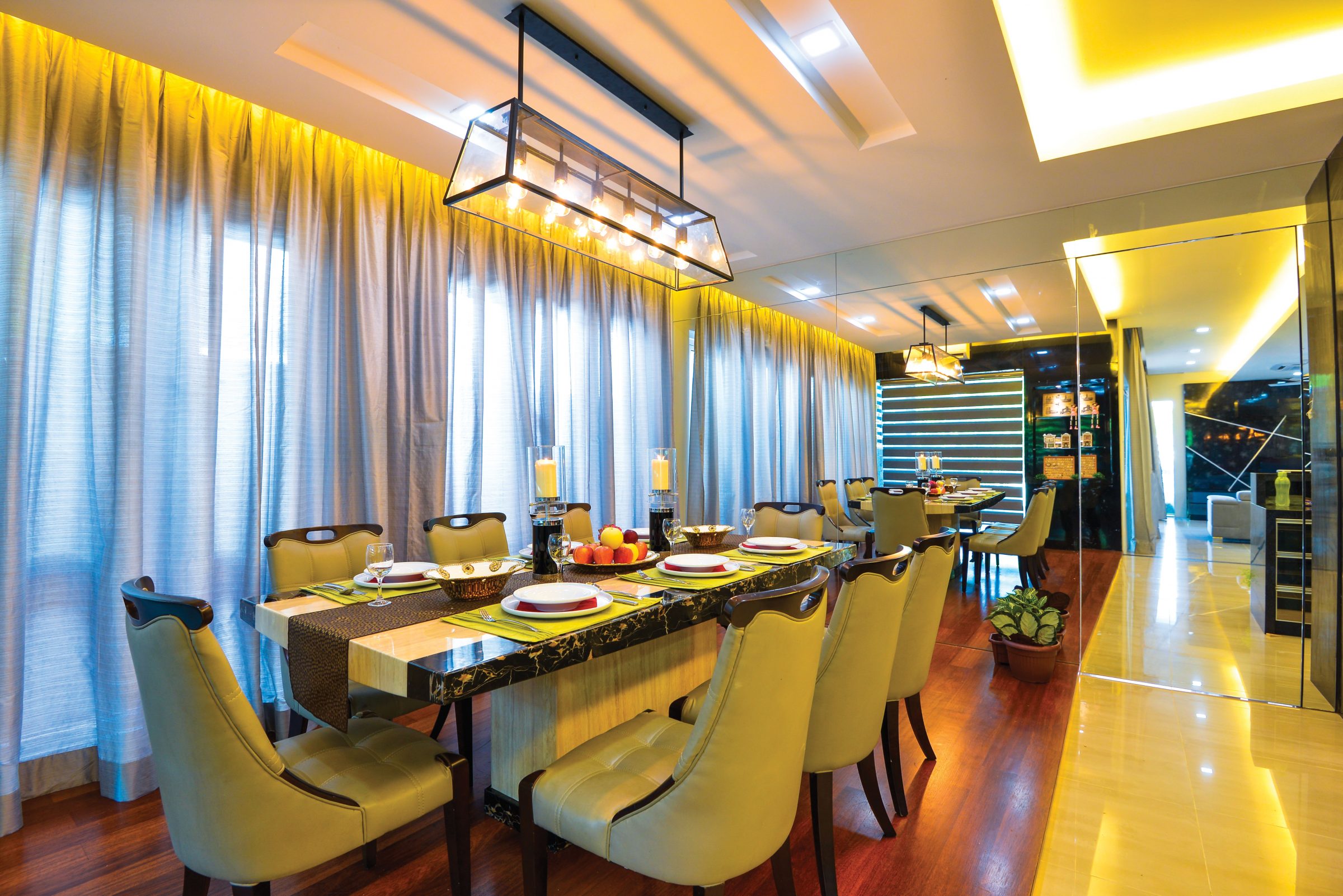
Interior design by: Zanotta
Few materials can match the gift of opulence that comes with a seamless slab of marble, and few pieces of furniture entail a horizontal stretch as generous as the typical dining table—which goes a long way toward explaining why dining surfaces from antiquity to modern times have been almost exclusively composed from dramatically veined or speckled stone. In the shimmering environs of the pictured dining space, a decadent slab of black marble with white veins is selected by Zanotta Studio Design and Renovation, to complement the champagne and gold tones of the space.
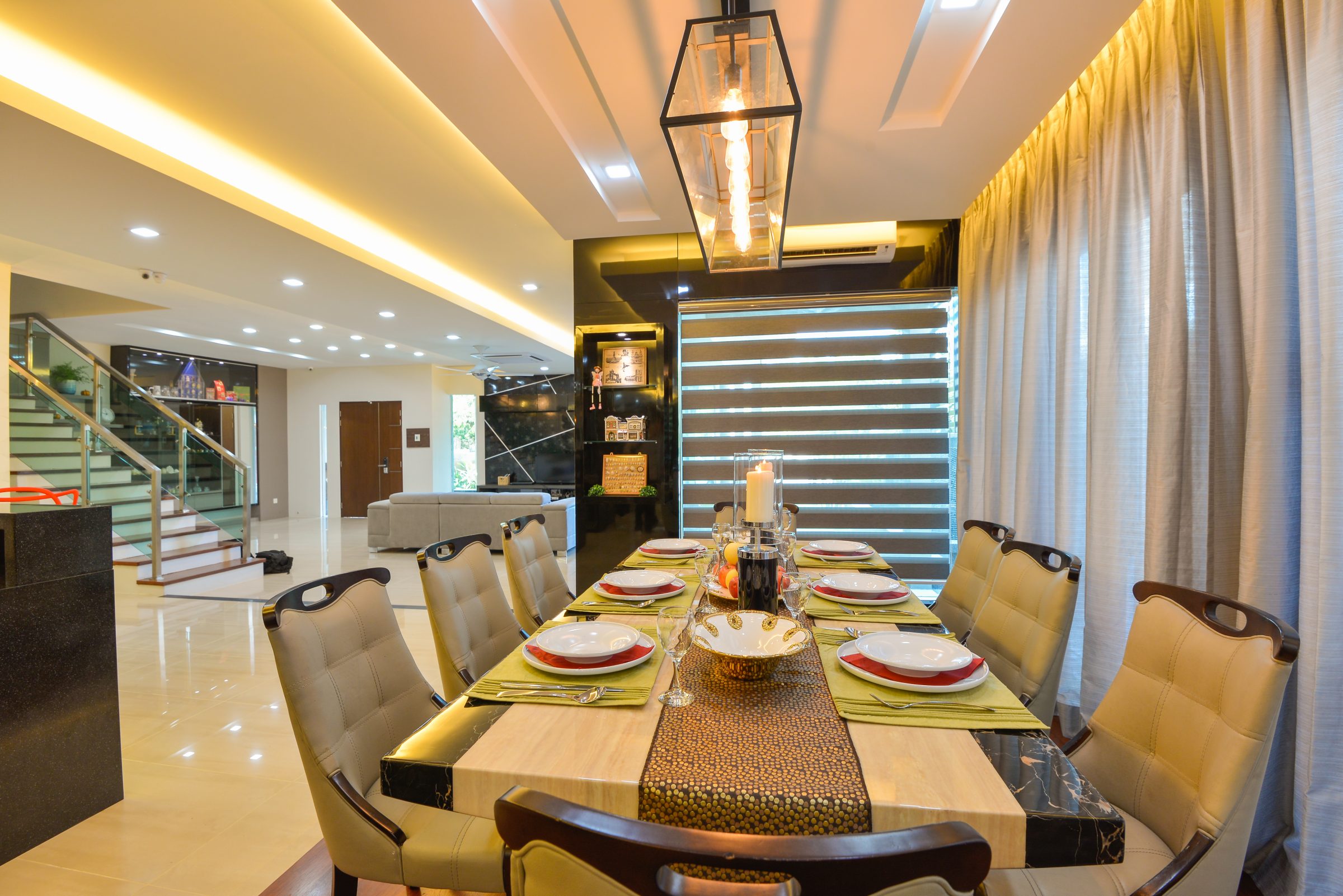
Interior design by: Zanotta








